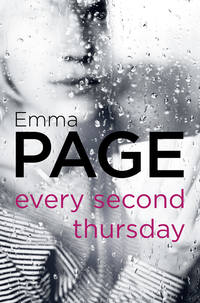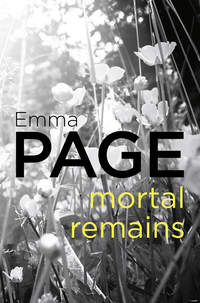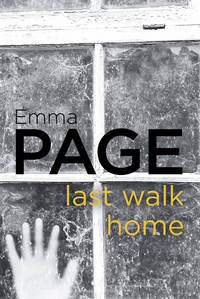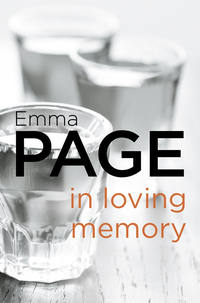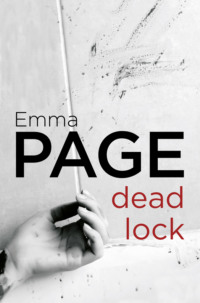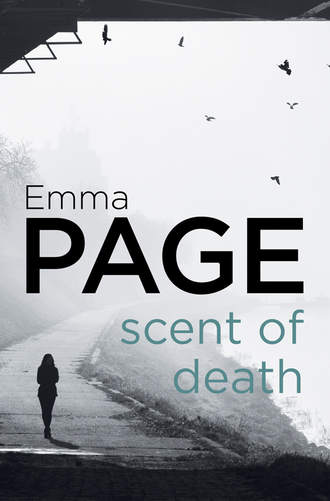
Полная версия
Scent of Death
The entomologist was finished at last. He came out of the privy and crossed over to where the two men stood. The Chief listened to what he had to say with his head bent, looking down at the bright spring grass, displaying no sign of unease. Sergeant Lambert felt nausea rise inside him; there were still these pockets of squeamishness which in spite of experience lingered on to inconvenience and embarrass him. He managed well enough while the entomologist spoke of soil structure and condition, moisture and desiccation, heat and cold, the effects of stability or fluctuation in all these factors, the less than airtight securing of the bags, but his brain attempted to switch itself off as soon as the little man began a lively account of the relentless, unwavering progression of insect life, blow flies, cheese flies, flesh flies, coffin flies, refusing to steady itself again until the expert’s tone took on a conclusive note.
‘As far as the older girl is concerned,’ he said judicially, ‘I would say her body has been in the shed between two and two and a half years. And the younger girl, four to five weeks.’
An hour or so later the sound of holiday traffic had increased, there was a constant whir and thunder from the motorway. Kelsey stood drinking a mug of scalding coffee. He had refused a sandwich, he could never fancy eating anything in circumstances such as these, however empty his stomach grew, however loud its rumblings.
The photographers had finished their work and left; the two bodies had gone off to the mortuary. The contents of each plastic bag, still kept separate, had been set out on the ground and given a preliminary examination before being taken off to the Forensic Science laboratory.
The identity of both girls had been amply confirmed from this brief scrutiny of their belongings. Joanne’s National Savings bank-book was among the orderly contents of her duffel-bag, which had been stuffed in alongside her body. The book gave her home address in Martleigh: 34 Thirlstane Street. The account showed a balance of almost a hundred and ninety pounds, the last entry being a withdrawal of thirty pounds from a Cannonbridge sub post office on Tuesday, March 1st. There was over ten pounds in notes and coins in a zipped pocket of the anorak she was wearing. There was no diary, no personal letter, among the possessions of either girl.
Helen Mowbray’s belongings were far more numerous than Joanne’s. Inside the privy, behind the two propped-up plastic bags, they had found two suitcases of quite good quality, together with a soft, zipped handgrip. These contained clothing and various business papers; all three cases clearly belonged to Helen. Their contents had been neatly packed and were apparently undisturbed. In marked contrast to this orderliness, the rest of Helen’s possessions had been tumbled pell-mell into the plastic bag that had lain on the privy floor. They undoubtedly belonged to her; her name appeared on the flyleaf of several paperbacks and on the sleeves of some of the gramophone records. Among these belongings was a shoulder-bag containing over a hundred pounds. Several articles had suffered minor damage, breakage, chipping, or tearing.
‘It looks as if Helen packed the two suitcases and the handgrip herself,’ Chief Inspector Kelsey said to Sergeant Lambert as they drank their coffee. ‘Ready to leave for some destination. Able to take her time about it, do the job properly. Then she also had all the other stuff to take with her, all her awkwardly-shaped possessions, difficult to pack neatly into cases. It looks as if she could have been expecting someone to call for her in a vehicle and she intended stacking these loose oddments in the boot or the back of the vehicle. Then whoever it was brought along a plastic bag and just shoved the things into it anyhow, in a tearing hurry.’ He chewed the inside of his cheek. ‘Her cases were so neatly packed, I can’t see her flinging the stuff into the bag in that careless fashion herself – or standing idly by and allowing someone else to treat her belongings in that way.’
He finished his coffee. ‘No doubt about it, both murders were committed by the same man. Clearly the second girl was killed because she came along asking questions about the first. She had either stumbled on or was about to stumble on the man who had killed her sister.’
‘The man?’ Lambert echoed.
Kelsey thrust out his lips. ‘Man or woman.’ He agreed with the doctor’s opinion that it could have been either. Both girls were short and slight. Both had been strangled from behind with a length of strong cord identical with that used to fasten the mouths of the plastic bags; both ligatures were still in place round the girls’ necks. ‘Nothing beyond the strength of any ordinarily healthy and active woman,’ Kelsey added. ‘All that was needed was a vehicle. And the ability to use a screwdriver.’
The town of Martleigh was a good deal smaller than Cannonbridge and lay twenty-two miles to the north-east. 34 Thirlstane Street proved to be a small butcher’s shop standing at the end of an Edwardian terrace in a respectable working-class district a mile or so from the town centre. There were no front gardens; the houses opened directly on to the street. When Sergeant Lambert halted the car and stepped out on to the pavement there were only the peaceful sounds of Sunday morning to be heard under the pale blue sky: radio music, children playing in a nearby street, a dog barking, the hum of traffic, a woman calling a child.
Gilded letters above the shop read: A. F. LOCKYEAR. FAMILY BUTCHER. The marble display slabs in the window had been washed down with scrupulous care; behind them a precise row of sheaves of white greaseproof paper, neatly impaled on metal hooks, obscured any view of the interior. Kelsey got out of the car and glanced up at the living quarters. The curtains were drawn back but there was no sign of life.
Sergeant Lambert pressed the doorbell. After a minute or two when there was no answer he pressed the bell again, keeping his finger on it for several seconds. Still no reply. He was about to press it for the third time when he became aware of someone watching from the house next door. A whisk of movement behind the net curtains of the downstairs window, a hand lifting the curtain discreetly to one side, a woman’s face appearing briefly at the other side of the glass. He stood waiting for her front door to open, as it did a few moments later.
A little birdlike woman of fifty or so came out on to the doorstep. She wore a trim nylon overall, her brown hair was neatly and becomingly dressed. She gave both men rapid up-and-down glances from her bright black boot-button eyes. She darted a swift look at the car before she spoke, knowing them at once for policemen.
‘Something wrong?’ She stepped out on to the pavement. When Kelsey didn’t answer she added, ‘Mr Lockyear’s not here. There’s no one at home. He’s on his own just now, with Joanne being away. I could take a message.’
‘Perhaps you could tell us where we could find Mr Lockyear?’ Kelsey said.
‘He’s down at his allotment. He’s always there this time of a Sunday, Easter or no Easter, makes no difference. He won’t get back here till just before one, all he’ll do is cook himself a chop.’ A mouth-watering odour of roasting turkey, sage and onion stuffing, drifted out behind her. Lambert felt all at once acutely hungry. ‘Is there something wrong?’ she asked again with the same lively, inquisitive air.
Kelsey still didn’t answer that. ‘Where can we find these allotments?’ he asked.
She gave him directions. ‘You’ve been very helpful,’ he told her. ‘Very good of you, Mrs …’
‘Mrs Snape,’ she said at once. ‘If there’s anything I can do—’
‘Thank you,’ he said, with finality. They went back to the car. She remained standing on the pavement, watching them with unabashed curiosity. ‘You can get back here tomorrow,’ Kelsey told Lambert as the car moved off. ‘She’ll talk her head off, given half a chance.’
The allotments were some three-quarters of a mile away, on the northern tip of Martleigh, in an open, windswept situation. The air was full of the cries of domestic fowl mingled with the chirruping of songbirds. Somewhere a radio played a Strauss waltz. Judging from the lingering, acrid smell as they crossed the bleak terrain, someone had recently cleaned out the fowl pens, had scattered the manure over the earth.
There was no great air of urgency about the place. Twelve or fourteen men, middle-aged or older, dug and planted in a leisurely fashion. Kelsey asked the first man they encountered if he could point out Mr Lockyear to them. ‘Arnold Lockyear?’ the man said. He gestured with an earth-stained hand. ‘He’s over there, at the far end.’
Lockyear had his back to them as they came over. He was stooping over a bed of rhubarb, examining the crowns, replacing ancient bottomless buckets and wooden orange boxes over the slender stalks. The other men continued to work on their plots, displaying no open curiosity.
Lockyear turned his head at the sound of their approach. He paused in his task and then straightened up. He remained where he was, in silence, his face expressionless, his eyes darting over them in swift assessment.
‘Arnold Lockyear?’ the Chief said. Lockyear gave a single nod. His face wore the look of a man who knows with certainty that he is about to hear bad news. A short, stocky man within hailing distance of middle age; a thick red neck and fleshy, jowled face, deepset brown eyes, thickly curling hair the colour of a cobnut. He looked not unlike a yearling bull.
The Chief identified himself and Lambert. The look on Lockyear’s face intensified, he closed his eyes for an instant.
‘I’m afraid we have bad news,’ Kelsey said. ‘Very bad news.’ The manure-scented breeze blew in their faces. From the neighbouring allotments the thock and click of tools sounded clear and distinct on the shimmering air.
‘It’s Joanne,’ Lockyear said with grim certainty. He stood with bowed head as the Chief said what had to be said. As he listened his face took on a look of stunned disbelief. When the Chief came to the end of his harrowing recital Lockyear raised his eyes and stared into Kelsey’s face. An expression of horror overlaid with frowning questioning appeared on his blunt features.
There was a brief silence, then Lockyear said with an air of frozen shock, ‘Both of them? Both the girls? Helen as well?’
‘I’m afraid so,’ the Chief said gently.
Lockyear drew a long quavering breath. He shook his head as if trying to clear it. ‘Let me get this straight,’ he said in a dogged way as if it might all somehow turn out to be no more than a piece of lunatic misunderstanding. ‘There’s no possible doubt about it? Both the girls are dead?’
‘I’m afraid there’s no doubt at all,’ Kelsey said. ‘They’re both dead.’ Lockyear stood looking at him with his arms hanging limply at his sides.
‘I’m afraid I must ask you to carry out an unpleasant duty,’ Kelsey said. Lockyear gave him an uncomprehending look. ‘I must ask you to come with us to the Cannonbridge mortuary, to identify the bodies.’
Lockyear’s mouth opened a little. He turned his head and stared down at the rhubarb crowns with their delicate rosy stems tipped with pale yellow leaves, frilled and crimped. He gave a single nod.
‘And we’ll need to ask you some questions,’ Kelsey said. ‘I’m sure you understand that. When you last saw the girls, what contacts you may have had with them since that time, who their friends and associates were, and so on. Any light you can throw on what’s happened. It will all take time, as I’m sure you’ll appreciate.’
Lockyear nodded slowly, he went on nodding for some seconds.
‘The post mortem will take place tomorrow morning,’ Kelsey said. Lockyear gave another slow, bemused series of nods. ‘You’ll probably want to call in at your house before we go to Cannonbridge,’ Kelsey added as Lockyear continued to stand there. ‘You may want to change your clothes, there may be something you need to see to. We can wait while you attend to it.’
Lockyear glanced down at his clothes. ‘Yes, I suppose I’d better change.’ He looked vaguely about. ‘I’d better clear up here.’ He covered the rest of the rhubarb, gathered up his fork and spade, trowel and hoe, without haste. He put them tidily away in the shed and locked the door, testing it afterwards to see that it was properly secured. All his actions were marked with care and deliberation, though his face still wore its drained, numbed look.
He didn’t speak to any of the other men working on the allotments as he walked away beside the two policemen; the men continued with their digging and forking as if unaware of the little party making its way past them. But when they reached the car and Lambert glanced back he saw that they had all now stopped working and were openly staring after them.
The drive to Thirlstane Street took place in silence. When they reached Lockyear’s shop it was lunchtime and the street was deserted. Lockyear was able to dart into his house unnoticed. The two men followed him inside. The air smelt stale and musty as if no one bothered to open the windows any more.
‘I’d like to take a look in Joanne’s room,’ Kelsey told Lockyear. ‘You can carry on with whatever you have to do.’
Lockyear led the way upstairs and opened a door on the right of the landing. ‘This is Joanne’s room,’ he said. ‘Helen had the room next door – it hasn’t been used since she left.’ He went off along the corridor to the bathroom.
Kelsey went into Joanne’s room and looked swiftly through her belongings. The room was adequately furnished, reasonably comfortable. All the soft furnishings looked in need of repair or renewal, as if nothing much in that line had been done for several years.
Joanne’s clothes were neatly arranged in a single wardrobe and a chest of drawers. Not a great deal of clothing and nothing very fancy; plain, functional, inexpensive garments. Beside the window stood a small bureau; none of the drawers was locked. The top drawer held an assortment of papers, methodically disposed. The letter from the aunt’s solicitor. A bundle of school reports: Joanne had been an industrious pupil, usually first in form at Art. Well behaved, presenting no problems; otherwise unremarkable. Photographs and snapshots, going back over a number of years, all with carefully written identifications. A wedding photograph of her parents, the bridegroom a resolute-looking young man, tall and slightly built, with a good forehead; the bride short and slight with a delicate, pretty face and shy smile, a great deal of dark hair dressed in curls and loops under her filmy veil.
A second wedding photograph, taken nine years after the first: the marriage of the girls’ mother to Arnold Lockyear’s father, the bridegroom grey-haired and bull-necked, with no discernible waistline but with a cheerful, good-tempered face alight with pride and love. His hand clasped the hand of his bride, even more slender and delicate-looking now in a dress and jacket of pale silk, a pretty little veiled cloche hat perched on her dark hair, still abundant, still glossy and wavy. She had an air of having passed through some harsh weathering process since she had last taken the arm of a bridegroom; the look was temporarily overlaid with an expression of tenuous optimism.
In front of the bridal pair stood two little girls in long dresses of Victorian print, their dark hair taken back under ribboned head-dresses, their hands clutching formal posies. Helen half a head taller than Joanne, both of them with ritual smiles fixed over an air of uncertainty.
Arnold Lockyear stood beside his father, with a space of a good couple of feet between them as if he had been determined to mark out the distance separating him from the rest of the family group. He wore a dark suit, a carnation prinked with greenery in his buttonhole; he looked straight ahead, his expression blank and unsmiling.
In the second drawer of the bureau were some paper-backed books: lives of various artists and a history of European art; a number of postcard-size reproductions of famous paintings; some copies of magazines devoted to the arts. And a portfolio of drawings and watercolours, all dated and signed: Joanne E. Mowbray, in a hand that grew progressively less rounded and childish as Kelsey turned the pages. Careful pencil studies of faces, animals, buildings; landscapes and townscapes in line and wash; heads of children in crayon and pastel. They looked competent enough to Kelsey; he wouldn’t have minded half a dozen on the walls of his flat.
In the lowest drawer he found a handful of trinkets, a few pressed flowers, some carefully preserved lengths of satin ribbon decorated with bows, such as might have been used to tie up presents. More photographs: Lockyear senior and his second wife with the two girls on a seaside holiday, all apparently enjoying themselves; Lockyear lying back in a deckchair with a straw hat shading his eyes, Joanne kneeling beside her mother’s chair, talking of her, both of them looking relaxed and carefree, Helen sitting beside them on the sand, absorbed in a book.
Kelsey closed the drawer and went next door into Helen’s room. Dusty sunlight streamed through the panes. A butterfly lay shrivelled on the window-ledge. The bed had been stripped, the mattress covered with an old cotton bedspread. The walls were bare, the wardrobe and chest of drawers empty except for a yellowed lining of newspapers bearing a date some five years ago. In the top drawer of the dressing table, under the lining, were a few blue beads and a torn piece of pink face tissue. In one of the small drawers was a child’s ring with a stone of red glass, and a motto from a Christmas cracker. Kelsey came out of the room and closed the door. He went slowly downstairs.
Sergeant Lambert was standing waiting in the hall; Lockyear was in the kitchen. He had washed, had changed into a dark suit and white shirt. He poured himself a cup of milk from the fridge. He held up the bottle and glanced at the Chief but Kelsey shook his head. ‘Ready when you are,’ he said.
Lockyear drained the milk in a single gulp. He washed his cup, locked up, and followed the two men out to the car.
He took his seat beside Kelsey in the rear. He made no attempt at conversation but kept his head averted, his elbow resting against the window, the outspread fingers supporting his forehead. After some little time Kelsey became aware that he was crying. The holiday traffic streamed towards them, family parties with excited children laughing and waving, dogs staring out through rear windows, blasts of music from radios as the cars swept past.
Some minutes later Lockyear drew a shuddering sigh. He sat up and took a handkerchief from his pocket. He dried his eyes, dabbed at his cheeks. He put the handkerchief away, drew several more trembling breaths and then fell silent. After a brief interval he said in a detached, explanatory tone. ‘They were both wilful, stubborn girls. There was no doing anything with them.’ Neither Kelsey nor Lambert made any reply.
Another minute or two slipped by, then Lockyear said, ‘I don’t suppose I understood either of them.’ He sounded as if he no longer expected any response but was simply expressing his thoughts aloud. ‘Hardly likely, I suppose, me being a bachelor.’ He said nothing more but sat in silence until the car halted outside the Cannonbridge mortuary.
Lambert got out and opened the car doors. Kelsey stepped out on to the forecourt but Lockyear didn’t budge. Lambert stooped and glanced in at him; he seemed to be making an effort to compose himself. Lambert said nothing but continued to look in at him. Lockyear suddenly jerked himself up and out of the car. He stood bracing his shoulders, drawing deep breaths, looking straight ahead.
‘Right then!’ he said with an attempt at briskness. ‘Let’s get it over with.’
When they came out into the mortuary corridor a few minutes later Lockyear was very pale. Tears ran down his face but he appeared unaware of them. He stood stranded in the middle of the corridor; he seemed at a total loss. Lambert put a hand under his elbow and steered him out of the building, down the steps, towards the car.
The Chief took his seat again in the back beside Lockyear. As the car pulled out Lockyear suddenly said, ‘This will finish me. It’ll ruin the business. I know it.’ He dropped his head into his hands.
‘I should have a word with your doctor when you get back to Martleigh,’ Kelsey said.
Lockyear made no reply. They reached an intersection and Lambert turned the car in the direction of the main police station.
CHAPTER 3
Very little time elapsed between the local radio station’s broadcast of the news that Jason Cooney had been found safe and well and its first news flash of the discovery at Stoneleigh of the bodies of two young women. After the police had broken the news to Arnold Lockyear the radio station made further broadcasts, giving details of the two girls. Shortly afterwards the phone calls began to come in.
Among the hoaxers and the nutters were several genuine calls; the more important of these the Chief intended to deal with himself. His first call, a little after eight on Monday morning, was on a Mrs Huband, the landlady with whom Joanne Mowbray had lodged during her brief stay in Cannonbridge; Mrs Huband lived in a terrace close to the railway station.
She was outside, perched on a stepladder, busily cleaning her windows, when they arrived. A plump, motherly-looking woman in late middle age, greying hair twisted into a bun; her print overall was carefully laundered. She abandoned her bucket and wash-leather and took the two men into her spotlessly clean little house.
‘I was that upset when I heard it over the radio,’ she told the Chief, her eyes filled with distress. ‘I’d often wondered how Joanne had got on, if she’d managed to find her sister.’
She had had no other lodger during the few days Joanne had stayed with her. ‘She found it quite comfortable here, and quite convenient, but she couldn’t afford to stay more than a few days.’ She looked earnestly up at him. ‘It’s not that I charge a lot, I wouldn’t want you to think that, but it’s all I have to live on, that and the widow’s pension.’ She pressed her hands together. ‘Anyway, she said she had to be careful with her money, so I told her about the girls’ hostel. I advised her to go along there and see the Warden.’ The hostel was an old-established concern in a residential quarter of Cannonbridge, run by a charitable trust.
Kelsey asked if she knew what success Joanne had had in her enquiries about her sister.
‘At first she was very pleased with what she’d been able to find out,’ Mrs Huband said. ‘She thought she was making good progress.’ She’d been along to two secretarial agencies Helen had worked for and she’d made contact with other people who had known Helen or employed her services. ‘But on the Wednesday morning I could see she was looking a bit down in the mouth. It seemed that everyone she’d come across who’d known Helen had known her some time ago, she hadn’t been able to find anyone who’d known her recently. She was beginning to think Helen must have left this area. She was in two minds about staying on in Cannonbridge at all, she thought she could be wasting her time – and her money. Perhaps she should give up and go back to Martleigh. It depended what she found out that day.’
Joanne had been along to the hostel on the Tuesday afternoon to explain her position. The Warden had told her she could have a bed there any night as long as she let them know before seven-thirty in the evening; if it was later than that, then she would have to take her chance. ‘So she squared up with me on the Wednesday morning,’ Mrs Huband said. ‘She told me she’d call back for her things about four o’clock. I said not to be later than four because I had to go out – I help at the Darby and Joan club on Wednesdays.’ She drew a sighing breath. ‘She was a nice girl, not pushy or inconsiderate, though she was very determined.’
‘Was she back by four?’
‘Yes, she came in about ten to.’
‘Did you speak to her?’
‘I didn’t have much time, I had to rush off. I told her to make herself a cup of tea, and to be sure to drop the latch when she left. She was the sort you could go off and leave in the house without worrying about what she might get up to. She was as honest as the day. You can always tell.’


